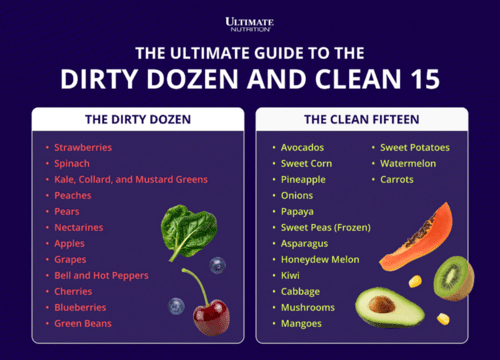
Boost Your Fertility Health: The S.A.N.E. Framework
We recently partnered with EMW TCM clinic to provide a whole-person approach to fertility care and treatment for its patients. Edmund Pang, their Principal TCM physician, explains how the S.A.N.E. Framework—Sleep, Anxiety Reduction, Nutrition, and Exercise—enhances fertility health.
When it comes to fertility, lifestyle plays a bigger role than many realize. The choices you make daily can either support or hinder your chances of conception. Edmund calls this the S.A.N.E. Framework—Sleep, Anxiety Reduction, Nutrition, and Exercise.
“I have worked with many couples trying to conceive. Besides medical interventions, many struggled with fertility due to lifestyle imbalances[1]—poor sleep, high stress, suboptimal nutrition, and a sedentary lifestyle. That’s why I created the S.A.N.E. Framework—a structured, evidence-based, yet flexible approach to lifestyle management,” explains Edmund.
Sleep — Your Body’s Natural Reset
Sleep is often overlooked, but it plays a vital role in fertility.
Studies[2] have also shown that poor sleep disrupts hormonal balance, particularly affecting melatonin and cortisol, impacting reproductive hormones like FSH, LH, and progesterone.
Aim for 7–8 hours of quality sleep each night and maintain a consistent sleep schedule, even on weekends, to support your body's natural rhythm.
Anxiety Reducing — A Key to Better Fertility
Stress is often called the "silent enemy" of fertility. When you're under constant stress, your body releases cortisol, which can interfere with the hormones responsible for reproduction.
The pressure of trying to conceive only adds stress, creating a challenging cycle. Go for simple activities like deep breathing, yin yoga, meditation, or daily walking. You don’t need to be perfect at these; it’s about making small efforts every day to calm your mind.
Nutrition — Feeding Your Fertility
Think of food as fuel for your reproductive system.
Edmund emphasizes the importance of nutritional therapy in his approach to improving fertility. He believes that what you eat daily directly impacts your fertility.
"I’m more concerned with what you are eating day in and day out. Are you preparing your own meals, or are you eating food out from a styrofoam container?" he asks. This focus on consistent, healthy eating habits is key to a supportive environment for conception and overall well-being.
For women, nutrients like folate, iron, and omega-3 fatty acids are essential for improving egg quality and supporting hormone production. Great sources include leafy greens, whole grains, nuts, seeds, fatty fish like salmon, and lean proteins.
Edmund recommends folate over folic acid because folate is readily available in whole foods and is already in a body-ready state. This means it’s easier to absorb and more effectively used by the body.
For men, nutrients like zinc, selenium, and vitamin C are important for producing healthy sperm. Foods like oysters, pumpkin seeds, eggs, and citrus fruits are great for male fertility.
It’s also wise to reduce processed foods, sugary drinks, and excessive caffeine or alcohol, as these can negatively affect fertility health.
Though Edmund recommends supplements, his advice is to go for a food-first approach for more balanced nutrients.
“Take an orange, for instance. It provides vitamin C, fiber, flavonoids, and water, supporting immunity and hormonal balance. In contrast, a vitamin C supplement contains only ascorbic acid. Similarly, fatty fish like salmon deliver DHA, EPA, selenium, and CoQ10—key for egg and sperm health—while fish oil supplements may lack some essential nutrients,” Edmund explains.
“Use supplements to fill the gaps, but replace a balanced diet,” he adds.
Women planning for pregnancy will need at least 400mcg of folate daily for at least three months before and three months into the pregnancy. It would be advisable to supplement with bioavailable compounds like 5-methyltetrahydrofolate (Folate) instead of folic acid to maintain this nutritional requirement.
Edmund also recommends selecting foods with lower pesticide contamination. Drawing from the Environmental Working Group (EWG), an organisation that examines pesticide residues in fruits and vegetables, he describes the Dirty Dozen and Clean Fifteen categories (see diagram below).

“Pesticides are a significant concern for fertility health because many of them act as endocrine disruptors[1], which interfere with hormonal balance and can negatively impact both male and female reproductive health,” he explains.
“It matters to fertility because certain pesticides have been linked to lower sperm count and motility in men, irregular menstrual cycles and ovulation disorders in women, and increased risk of miscarriage and poor embryo quality,” he says.
A study published on October 30, 2017, in JAMA Internal Medicine examined 325 women undergoing infertility treatment as part of the Environment and Reproductive Health (EARTH) study. The findings revealed that women who consumed more than two servings of high-pesticide fruits or vegetables per day were 18% less likely to become pregnant and 26% less likely to have a live birth than those with the lowest pesticide exposure, who consumed an average of one serving per day.
“To minimise pesticide exposure, I advise my patients on fertility treatment to avoid high-pesticide foods, the Dirty 10, unless they are organic and to feel confident consuming conventionally grown produce from the Clean 15,” Edmund advises.
Exercise — Finding the Right Balance
Exercise is essential for overall health and fertility, but balance is key. Too much intense activity—like high-intensity interval training (HIIT)—can disrupt ovulation in women, while in men, it may lower testosterone and affect sperm quality. On the flip side, being too sedentary isn't helpful either.
“The key is balance—not eliminating exercise, but adapting it to support, not stress, reproductive health,” he says,
Edmund advises choosing moderate activities that improve blood circulation to the reproductive organs. He recommends brisk walking, swimming, cycling, yoga and pilates. He also suggests strength training 2-3 times a week.
Final Thoughts
Managing fertility is like a symphony—many elements must work in harmony, including lifestyle, nutrition, stress levels, and medical treatment.
By addressing these modifiable lifestyle factors, Edmund has seen remarkable improvements in his patients’ reproductive health. Some have conceived naturally or experienced better IVF outcomes.
But remember, these changes are not just about getting ready for pregnancy. They are about creating a healthier, stronger version of yourself physically and emotionally.
“Some of my patients did not achieve IVF success, but they were glad that they now have a healthier lifestyle and better well-being,” he says.
[1] Vessa B, Perlman B, McGovern PG, Morelli SS. Endocrine disruptors and female fertility: a review of pesticide and plasticizer effects. F S Rep. 2022 Apr 15;3(2):86-90. doi: 10.1016/j.xfre.2022.04.003. PMID: 35789730; PMCID: PMC9250118. https://pmc.ncbi.nlm.nih.gov/articles/PMC9250118/
[1] [1] Emokpae MA, Brown SI. Effects of lifestyle factors on fertility: practical recommendations for modification. Reprod Fertil. 2021 Jan 8;2(1):R13-R26. doi: 10.1530/RAF-20-0046. PMID: 35128442; PMCID: PMC8812443. https://pmc.ncbi.nlm.nih.gov/articles/PMC8812443/
[2] Beroukhim G, Esencan E, Seifer DB. Impact of sleep patterns upon female neuroendocrinology and reproductive outcomes: a comprehensive review. Reprod Biol Endocrinol. 2022 Jan 18;20(1):16. doi: 10.1186/s12958-022-00889-3. PMID: 35042515; PMCID: PMC8764829. https://pmc.ncbi.nlm.nih.gov/articles/PMC8764829/
